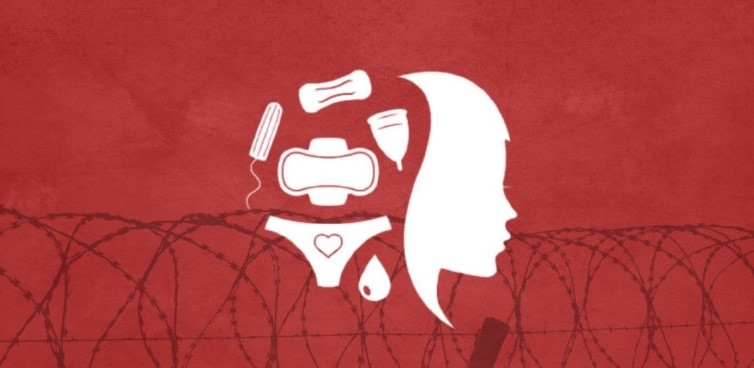
Disclaimer: Copyright infringement not intended.
Context
- The Supreme Court emphasized that approaching the police should be the last resort for families facing marital issues.
- SC noted that police intervention should be limited to genuine cases of cruelty and harassment.
- They cautioned against misuse of police involvement by spouses seeking to manipulate the situation.
MUST READ ARTICLE: https://www.iasgyan.in/daily-current-affairs/overhaul-of-british-era-criminal-laws
Supreme Court Judgement
Limited Application of Section 498A:
- The court highlighted that the invocation of Section 498A of the Indian Penal Code (IPC), regarding domestic cruelty, should not be automatic in every case of marital discord.
- It emphasized that not all marital disputes amount to cruelty; trivial irritations and day-to-day quarrels may not qualify.
- The court specified that in cases of domestic abuse, certain criteria, such as criminal intimidation and causing hurt, must be met for an FIR to be considered complete.
Call for Legislative Amendments:
- The Supreme Court urged Parliament to reconsider Sections 85 and 86 of the Bhartiya Nyaya Sanhita, 2023, which correspond with Section 498A IPC.
- It emphasized the need for pragmatic revisions, considering the potential consequences for the accused, including imprisonment and fines.
- The court directed its Registry to transmit the judgment to relevant government officials for consideration.
Critique of Family Behavior:
- The judgment criticized the tendency of some wives' parents to exaggerate minor issues, leading to the unnecessary escalation of marital disputes.
- It observed that instead of working towards reconciliation, some family members exacerbate the situation out of ignorance or animosity towards the husband and his family.
- The court lamented the immediate resort to police involvement, which often hampers chances of reconciliation between spouses.
Bharatiya Nyaya Sanhita, 2023
- The Bharatiya Nyaya Sanhita, 2023 is a significant legal framework overhaul in India, replacing the long-standing Indian Penal Code (IPC) since 1860.
- This Act consolidates and amends provisions related to offenses, streamlining the legal framework governing criminal activities in the country.
- The Bharatiya Nyaya Sanhita, 2023 reflects a modern, comprehensive, and proactive stance towards criminal law and justice, addressing contemporary legal and societal challenges.
- It aims to tackle emerging issues such as cybercrimes, offenses against women, and technological advancements, adapting to the evolving nature of criminal activities.
- The Act aligns with international best practices and human rights standards, ensuring that Indian criminal law remains in sync with global legal norms.
- This legislation marks a crucial step towards establishing a fair, efficient, and effective criminal justice system in India, with profound implications for the protection of human rights and the maintenance of the rule of law.
Principal provisions outlined in the Bharatiya Nyaya Sanhita, 2023
The Bharatiya Nyaya Sanhita, 2023 encompasses various significant provisions concerning offenses within India. Among the notable provisions are:
- Definition and Punishment of Offenses: The Act delineates numerous offenses and stipulates corresponding penalties, which may include death, imprisonment, property forfeiture, fines, and community service.
- Extraterritorial Jurisdiction: The Act extends to offenses committed beyond Indian borders by Indian citizens, individuals aboard Indian registered vessels or aircraft, and those engaging in offenses targeting computer resources situated in India.
- Punishment Commutation: Provision is made in the Act for the alteration of penalties by the competent governmental authorities.
- Accountability of Public Servants: The Act addresses offenses perpetrated by public officials and specifies penalties for breaches of legal obligations by such individuals.
- Promotion of Social Harmony: The Act prohibits actions such as making assertions or appeals that incite disharmony or animosity among various religious, racial, linguistic, regional, caste, or communal groups.
- Non-Appearance Offenses: The Act also encompasses offenses related to failure to appear in response to proclamations issued under section 84 of the Bharatiya Nagarik Suraksha Sanhita, 2023.
How does the Act influence the existing legal landscape concerning offenses in India?
The Bharatiya Nyaya Sanhita, 2023 serves as a comprehensive legislation that amalgamates and revises the statutes pertaining to offenses in India. Its impact on the existing legal framework regarding offenses in India is delineated as follows:
- Repeal of Outdated Laws: The Act nullifies several antiquated legislations concerning offenses, notably the Indian Penal Code.
- Consolidation of Legal Provisions: By consolidating the regulations concerning offenses into a singular statute, the Act facilitates comprehension and application for law enforcement agencies, legal practitioners, and judiciary.
- Amendment of Preexisting Laws: The Act introduces modifications to several preexisting legislations concerning offenses in India, such as the Protection of Children from Sexual Offenses Act, 2012, and the Information Technology Act, 2000. These amendments aim to fortify the efficacy of these laws.
- Introduction of Novel Offenses: The Act introduces novel offenses, including actions such as making prejudicial imputations or assertions detrimental to national integration, and offenses such as causing death by negligence or injury by rash or negligent driving. These additions cater to emerging issues, ensuring legal relevance in contemporary contexts.
- Uniform Application of Law: The Act endeavours to establish uniformity in the legal framework governing offenses throughout India. This objective is realized by implementing a singular law applicable across the entire nation, thereby replacing the prior scenario of disparate laws across states (It's noteworthy that the previous IPC didn't extend to the State of Jammu and Kashmir; however, with the abrogation of Article 370 and the conversion of Jammu and Kashmir into a Union Territory, this new legislation is now applicable there as well).
Process for the implementation and enforcement of the Act
The implementation and enforcement process of the Bharatiya Nyaya Sanhita, 2023 unfolds through several procedural stages:
- Firstly, the Act is brought into effect upon notification by the Central Government in the Official Gazette, with the possibility of staggered implementation for different provisions.
- Subsequently, training and capacity-building initiatives are undertaken to familiarize law enforcement agencies, legal practitioners, and judiciary personnel with the Act's provisions, ensuring its effective application.
- The responsibility for investigating offenses under the Act lies with the police, who must adhere to the prescribed procedures for investigation and prosecution, with prosecution being carried out by designated officials.
- The trial of offenses falls within the purview of the courts, which must adhere to the procedural guidelines outlined in the Act, ensuring the accused's right to legal representation and a fair trial.
- The Act also provides avenues for appeals and revisions against court orders and judgments, with procedural details outlined within the legislation.
- To maintain effectiveness, the Government may monitor the Act's implementation and enforcement, periodically reviewing its impact and making necessary adjustments.
- Ultimately, the Act stipulates punishments for offenses, which may include imprisonment, fines, forfeiture of property, community service, and in extreme cases, death penalty.
- Top of Form
MUST READ ARTICLE: https://www.iasgyan.in/daily-current-affairs/overhaul-of-british-era-criminal-laws
Offences that are punishable under this act
The Bharatiya Nyaya Sanhita, 2023 encompasses a wide range of offenses that are punishable under its provisions. Some of the Offences that are punishable under this Act include:
- Offenses against the person: This category includes crimes such as murder, culpable homicide, grievous hurt, causing death by negligence, and assault.
- Offenses against property: Crimes related to theft, robbery, extortion, criminal misappropriation of property, and mischief are covered under this category.
- Offenses related to public order and safety: This includes offenses such as rioting, affray, promoting enmity between different groups on grounds of religion, race, place of birth, residence, language, etc.
- Offenses related to sexual offenses: The Act addresses crimes such as rape, sexual harassment, and offenses against children.
- Offenses related to corruption and economic crimes: This category covers offenses related to corruption, bribery, fraud, and economic crimes.
- Offenses related to cybercrimes: The Act addresses offenses such as hacking, identity theft, data breaches, and other cybercrimes.
- Offenses related to environmental protection and conservation: Crimes related to environmental violations and conservation are also addressed under the Act.
- Offenses related to drug trafficking and substance abuse: The Act provides provisions for offenses related to drug trafficking, possession, and substance abuse.
- Offenses related to human trafficking and exploitation: Crimes related to human trafficking, exploitation, and forced labor are punishable under the Act.
- Offenses related to national security and terrorism: The Act includes provisions for offenses related to national security, terrorism, and related activities.
Potential consequences for individuals who violate this act
The Bharatiya Nyaya Sanhita, 2023 prescribes punishments for individuals who violate the provisions of the Act. The potential consequences for individuals who violate the Act are as follows:
- Death Penalty: The Act provides for the death penalty as a punishment for certain offences, such as murder.
- Imprisonment: The Act provides for imprisonment as a punishment for various offences. The term of imprisonment may vary depending on the nature and severity of the offence and it is simple and rigorous (with hard labour).
- Fine: The Act provides for the imposition of a fine as a punishment for various offences. The amount of the fine may vary depending on the nature and severity of the offence.
- Forfeiture of Property: The Act provides for the forfeiture of property as a punishment for various offences. The property may be forfeited to the Government or to the victim of the offence.
- Community Service: The Act provides for community service as a punishment for various offences. The nature and duration of the community service may vary depending on the nature and severity of the offence.
Bharatiya Nyaya Sanhita, 2023
- The Bharatiya Nyaya Sanhita, 2023 signifies a transformative shift in India's criminal justice system, replacing the Indian Penal Code with a modernized and comprehensive approach to addressing legal and societal challenges.
- With a focus on tackling cybercrimes, offenses against women, and technological advancements, while aligning with international standards, the Act sets the stage for a fair and efficient criminal justice system.
- Its implications for upholding the rule of law underscore its importance in ensuring justice for all in the country.
Criticism and Debate:
- Despite its merits, the Act has faced criticism and debate since its introduction.
- Concerns have been raised regarding its broad and vague language, potentially leading to misuse by law enforcement agencies.
- Questions have been raised about its impact on civil liberties and human rights, especially regarding freedom of expression and privacy.
- Some argue that the Act falls short in addressing certain issues like hate speech and discrimination based on sexual orientation.
Overall Significance:
- The Bharatiya Nyaya Sanhita, 2023 reflects India's commitment to justice, equality, and the rule of law, marking a significant milestone in legal evolution.
- It addresses a wide range of offenses and provides for various punishments, embodying a complex and comprehensive legal framework.
- Continuous monitoring of its implementation and impact is crucial to ensure alignment with principles of justice, fairness, and human rights.
|
PRACTICE QUESTION
Q. Discuss the significance and implications of the Bharatiya Nyaya Sanhita, 2023, in shaping India's criminal justice system. Analyze its provisions and their potential impact on addressing contemporary legal and societal challenges.
|












